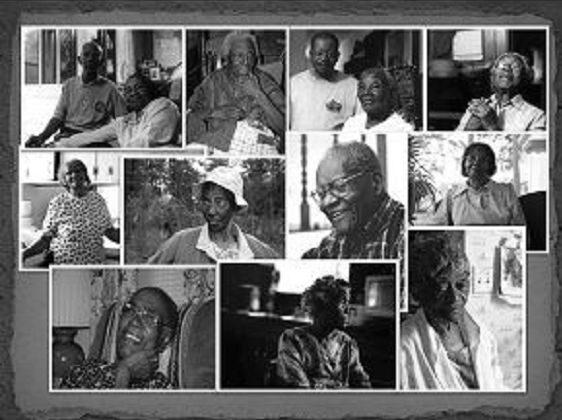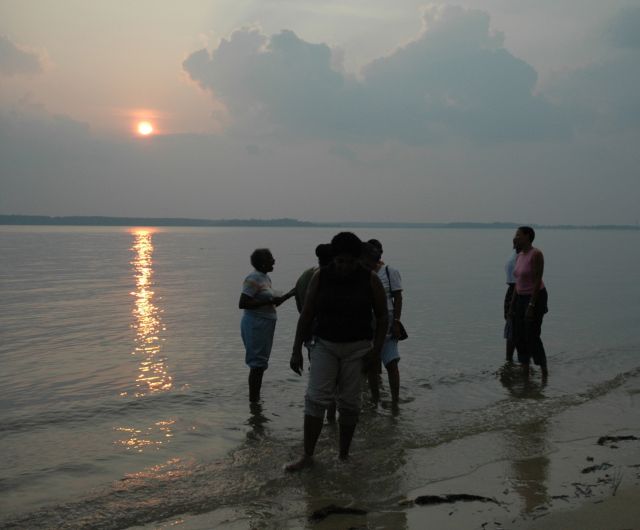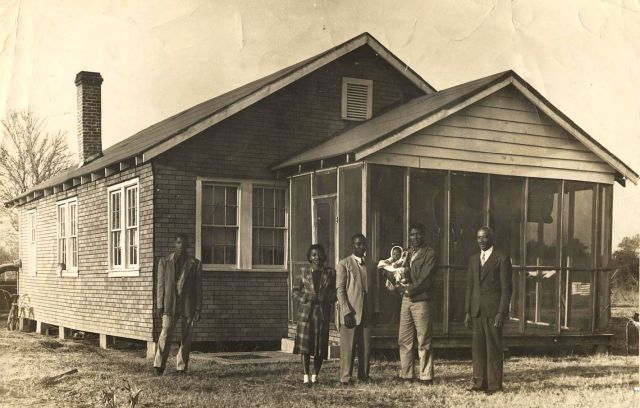Schooled by the Elders:
Things They Don't Tell Just Anybody
Growing Up Gullah
. . . and Other Southern Tales


Finding a Way Home

Finding a Way Home
African descendants in the Southern United States are representatives of an ethnic or cultural heritage that link to an African origin. DNA testing can provide a possible link to an ethnic origin. Genealogical and historical research takes effort and skills to find a way home from the Southern United States to a place of origin. Learn to make the connection and understand your cultural past. Once the connection is made, learn how to document the journey for preservation and storytelling so future generations can appreciate the continuity of heritage and the spirit of cultural legacy.
The article below was first published June 1, 2001in The NewsLeader (Henry County, Georgia) for a series titled "History Revisited." The articles would introduce readers to the practice of collecting family stories for further generations. I would write about sitting with elders to document family stories so that the link from one generation to the next would not be broken. My belief in listening to elders is that "We are still connected to our cultural past. Beyond the current generation, that link may be broken forever."
I now introduce the series as a blog, with a new title and current practice. Some words have been updated from the original publication.
A Way Home: Black Cultural Heritage in the Southern Story
The perception of many blacks in the United States is that too much of our history is lost or unattainable. After years of personal searching, I have come to realize that black history has been documented and told to a sufficient degree that many stories can be put together in an understandable way. History Revisited is about delving into the ways I have been able to uncover the past of my family, not only as blacks in the South, but also as members of the Gullah Geechee culture. The culture inhabit the coastal region from Pender County, North Carolina, to St Johns County, Florida--the region built by rice growers from the Rice Coast of West Africa, which financed the antebellum image of Southern culture.
The history of African descendants in the United States, specifically in the South, has left an indelible mark on the evolution of the United States. Despite the horrifying stories of survival, few people realize or remember that survival has helped create a legacy that should be celebrated. The focus of this blog will be to rediscover the legacy that has sustained a population through a difficult past. Topics will not be limited to the past already written about, but will include the oral stories of others, both old and young, who can recall facts about a place or person. I believe in Griots, the educator/storytellers of African heritage. Many elders in our communities have not been heard enough, and they know plenty about history that is not written in books. These people are important, filling in the gaps of information in our recent past. Some younger people retain stories they learn at the feet of elders who are in turn glad for a patient and respectful ear.
Issues that I will uncover may not always conform to what is acceptable overall, which many blacks view as an unwritten correctness, but will examine topics such as the history of the words we use to call ourselves. Two examples are the words slave and African- American. Africans were not born slaves, but were enslaved for the economic advancement of those involved--Europeans, then Americans, and Africans. The horrific trade in human commodity was about money.
The most recent term used to identify Americans of African descent, African- American, developed in the late 1980s following a long list of names dating back into the early 1800s. These names do not include the well-known n-word. As Americans of African descent continue to define who we are, still other descendants of the African Diaspora (those originally displaced from Africa) continue to define the areas of the West Indies and Caribbean, Central and South America, in terms they themselves have chosen. With but four percent of the total African Diaspora in the United States, who gets to decide the name of a group elsewhere in the Americas? If African descendants of the United States alone are to be named African-American, what do we call blacks who have recently arrived into this country?
Plantation is another word that generates mixed feelings among blacks. Should a housing complex targeted for a black community use the word plantation in its name? This brings to mind the number of plantations in the South owned by blacks, who also enslaved Africans. Not all Africans or their descendants in the South were enslaved. In fact, there were nearly one-half million free blacks in the United States by 1860, included thousands living in the South. Africans were present over one-hundred years in what would become the Unites States before 1619 when 20 Africans were sold into slavery in the Virginia colony from a Dutch ship to trade for food. African descendants made a living at every level of the economic scale, no matter the hardship, building the economy of the Unites States, especially the economy of the South.
So much of what is perceived by blacks currently in the Southern story is about lynching, slavery and the Civil Rights Movement. Other stories of black cultural heritage in the South will be explored and uncovered in future blogs of A Way Home. There are now-lost towns that blacks created, and unmarked historical locations that should draw interest enough for a visit. The rich black history of the South should make us proud. Between the Middle Passage out of Africa and the passage of desegregation laws centuries later, much information has survived.
Documents are sufficiently intact for many blacks to trace their genealogy. I will discuss family history and how to search for the links to the past. Not all periods are pleasant to face--for example, pre-Civil War estate inventories where blacks are listed as slaves along with such other chattel as cows, pigs, and horses. Tracing families back to a ship�s manifest also requires tenacity and sometimes tears. Not all has been lost.
Let us embark on putting the pieces together about the history of the black cultural heritage of the Southern story. Some things may be uncomfortable, or not agreeable, but I hope to enlighten. As an academic, I will offer a suggested reading list. Some information published is written to please the limited viewpoint of a certain author or audience, but wonderful books have been written by people concerned with telling the truth about a person, place, or thing.
Let us now begin to find a way home.
Things They Don't Tell Just Anybody
. . . and Other Southern Tales


Finding a Way Home
